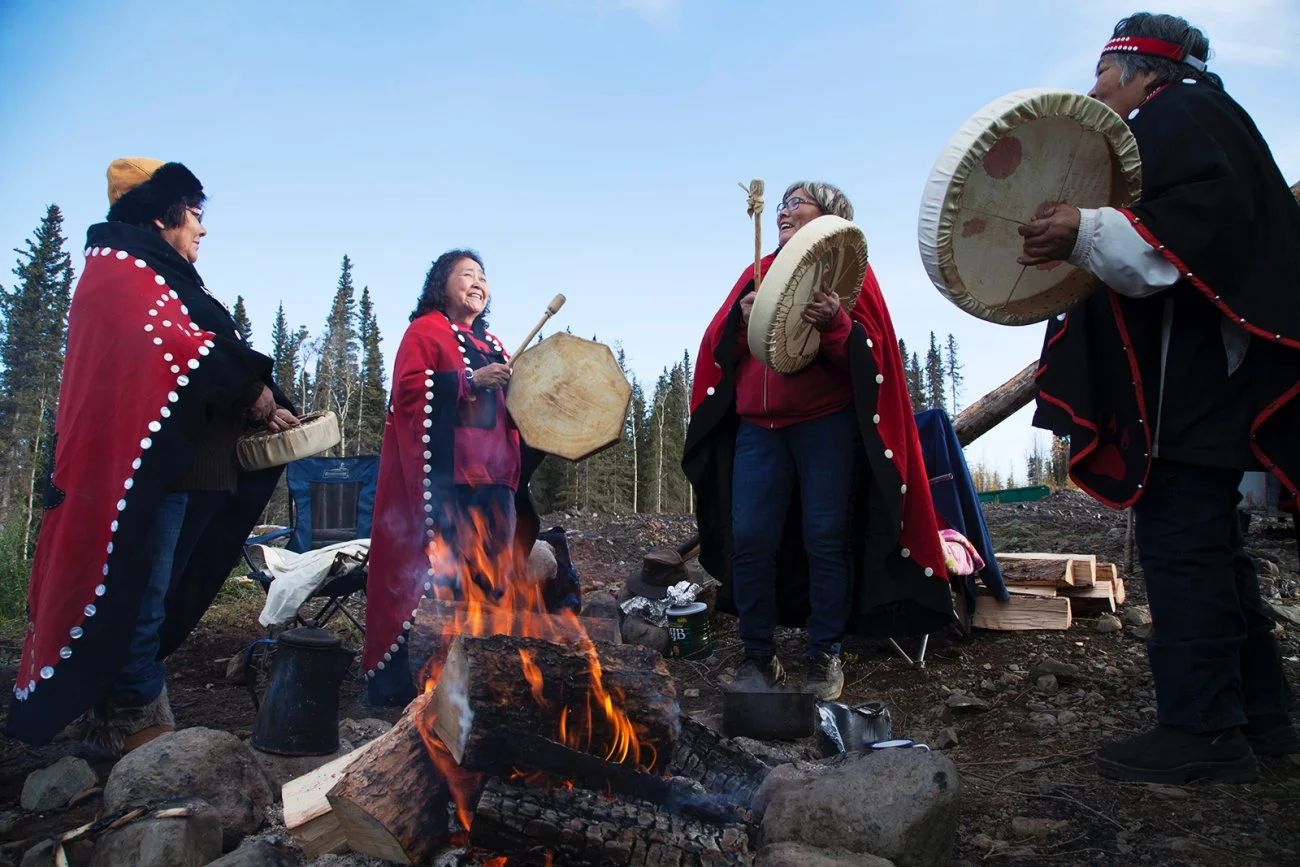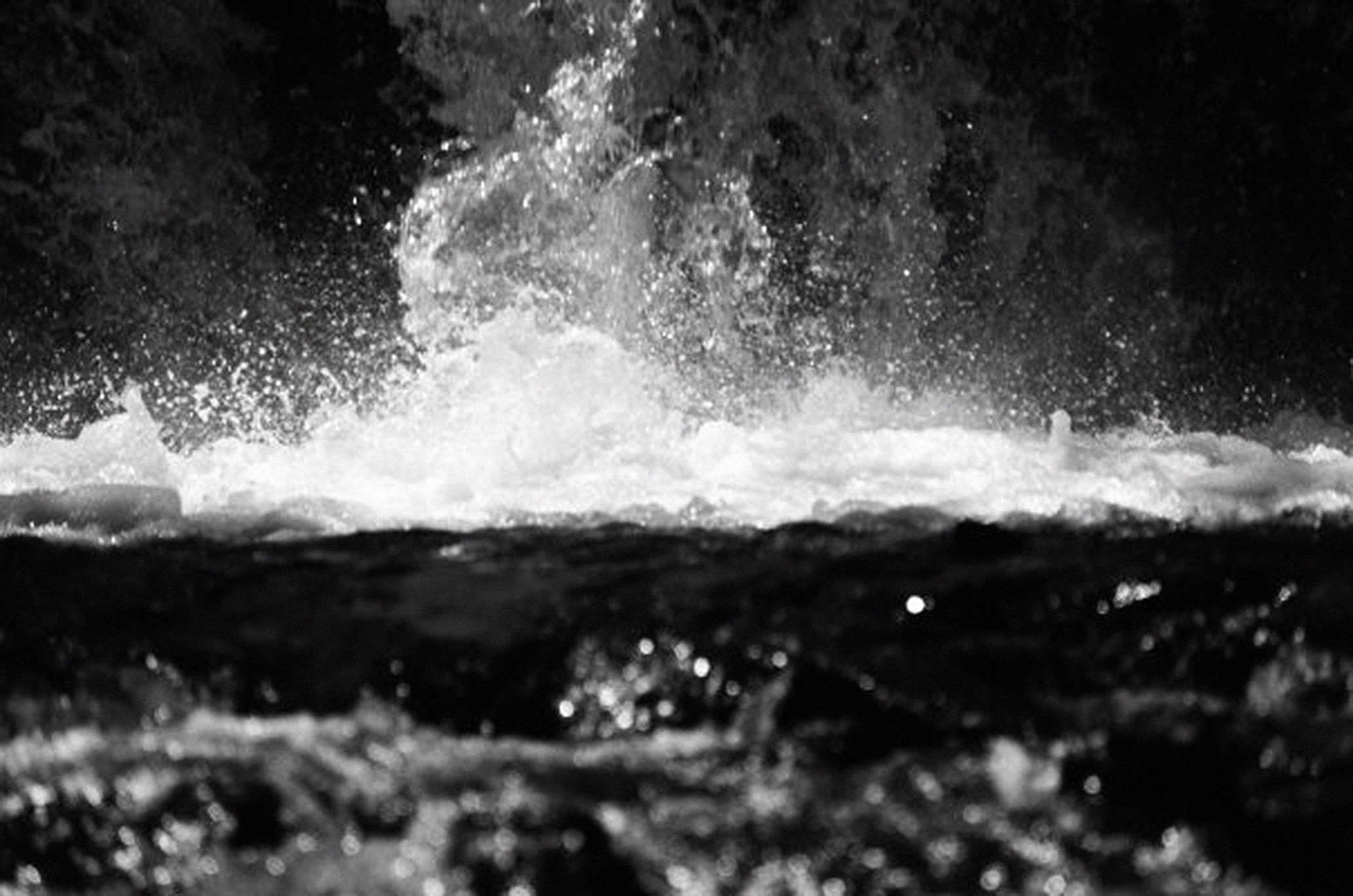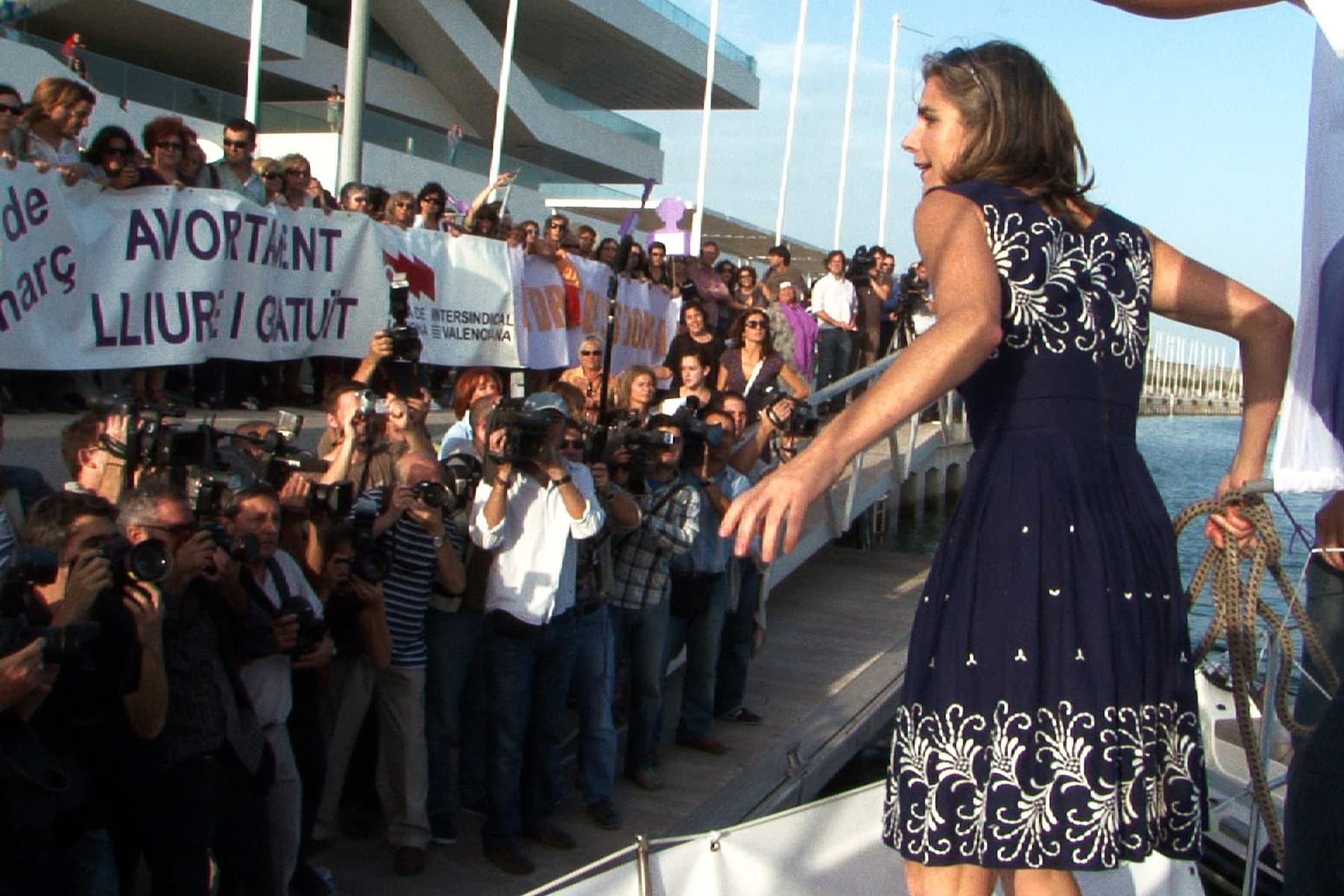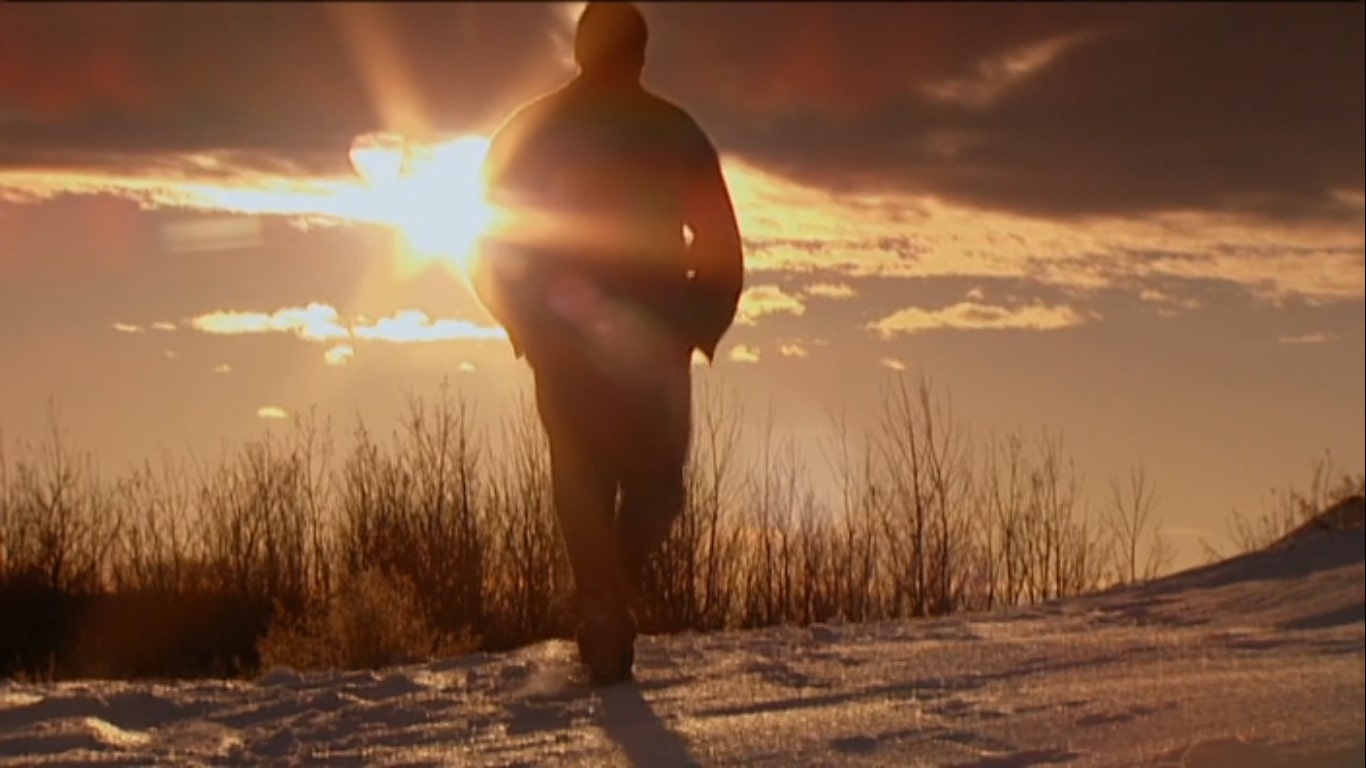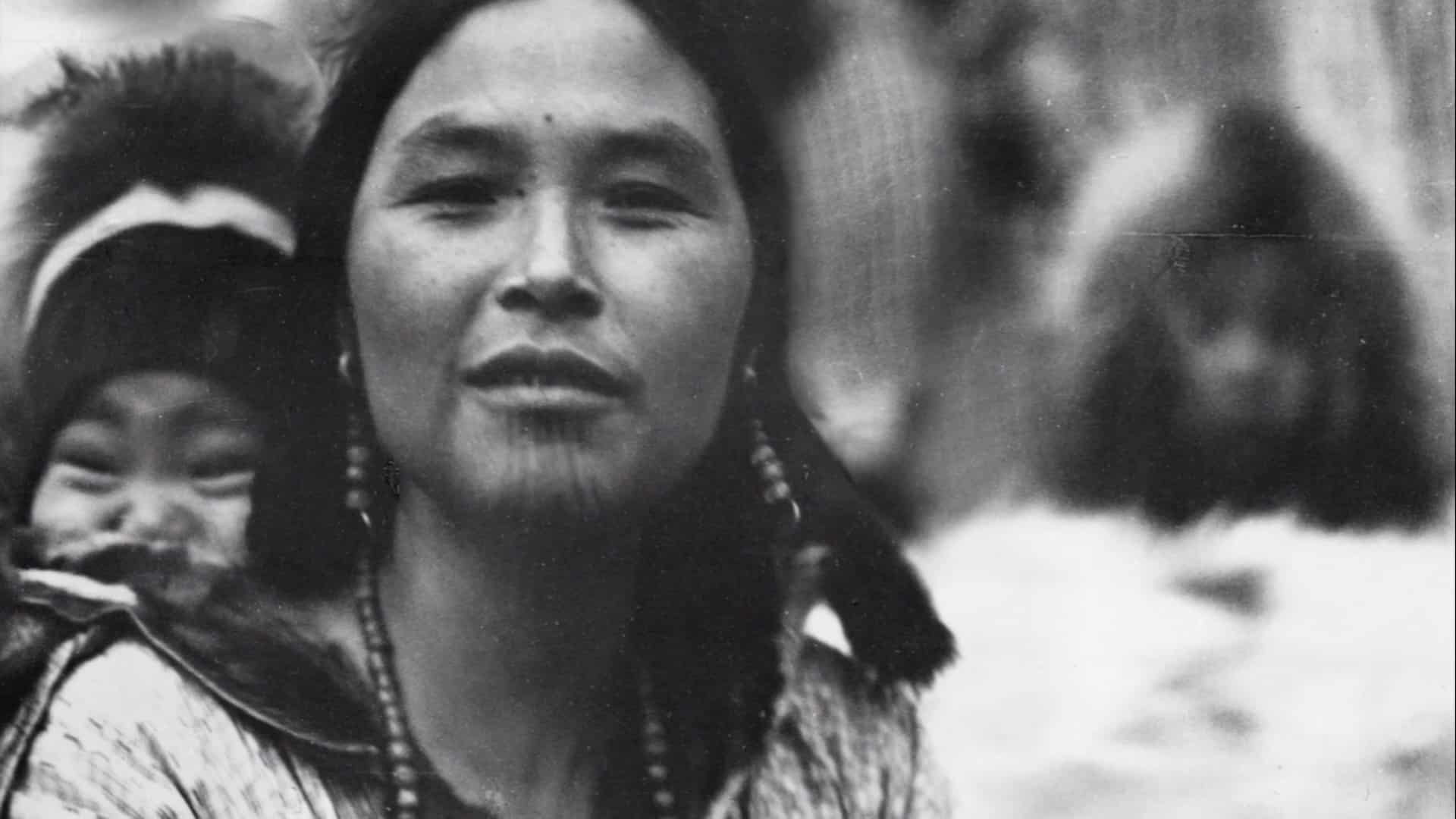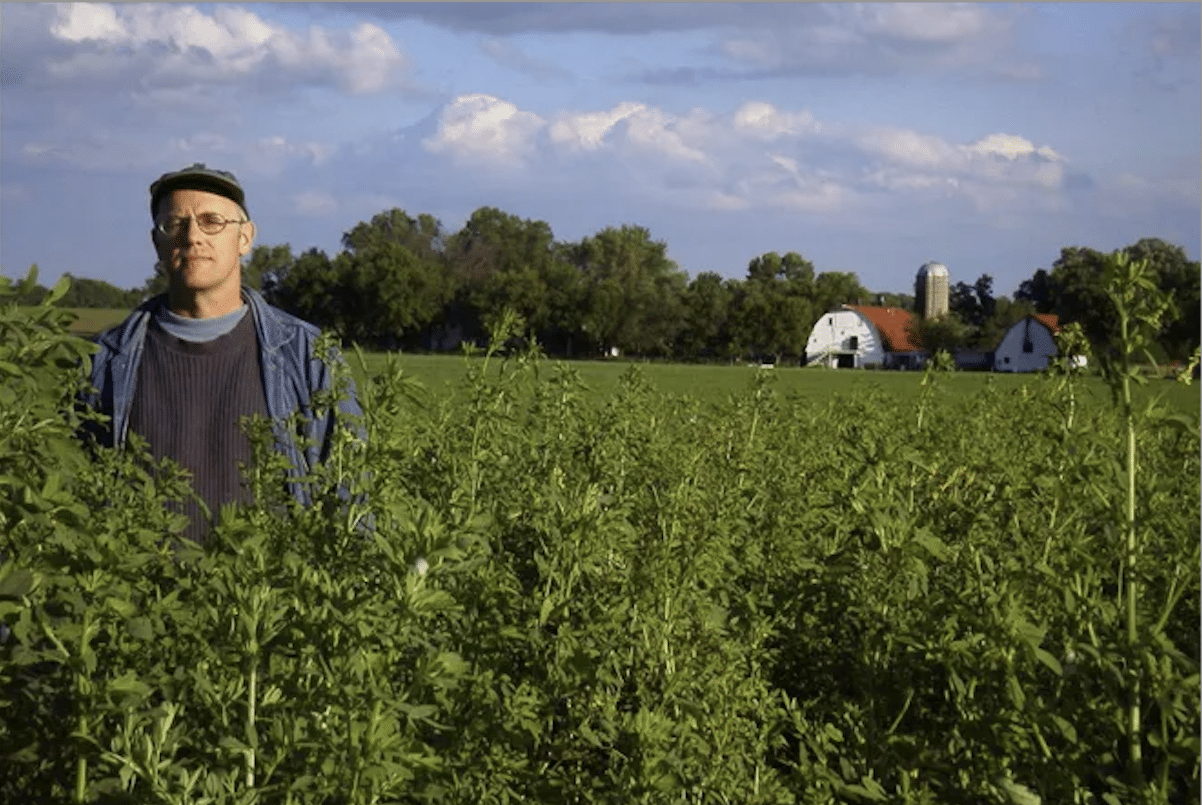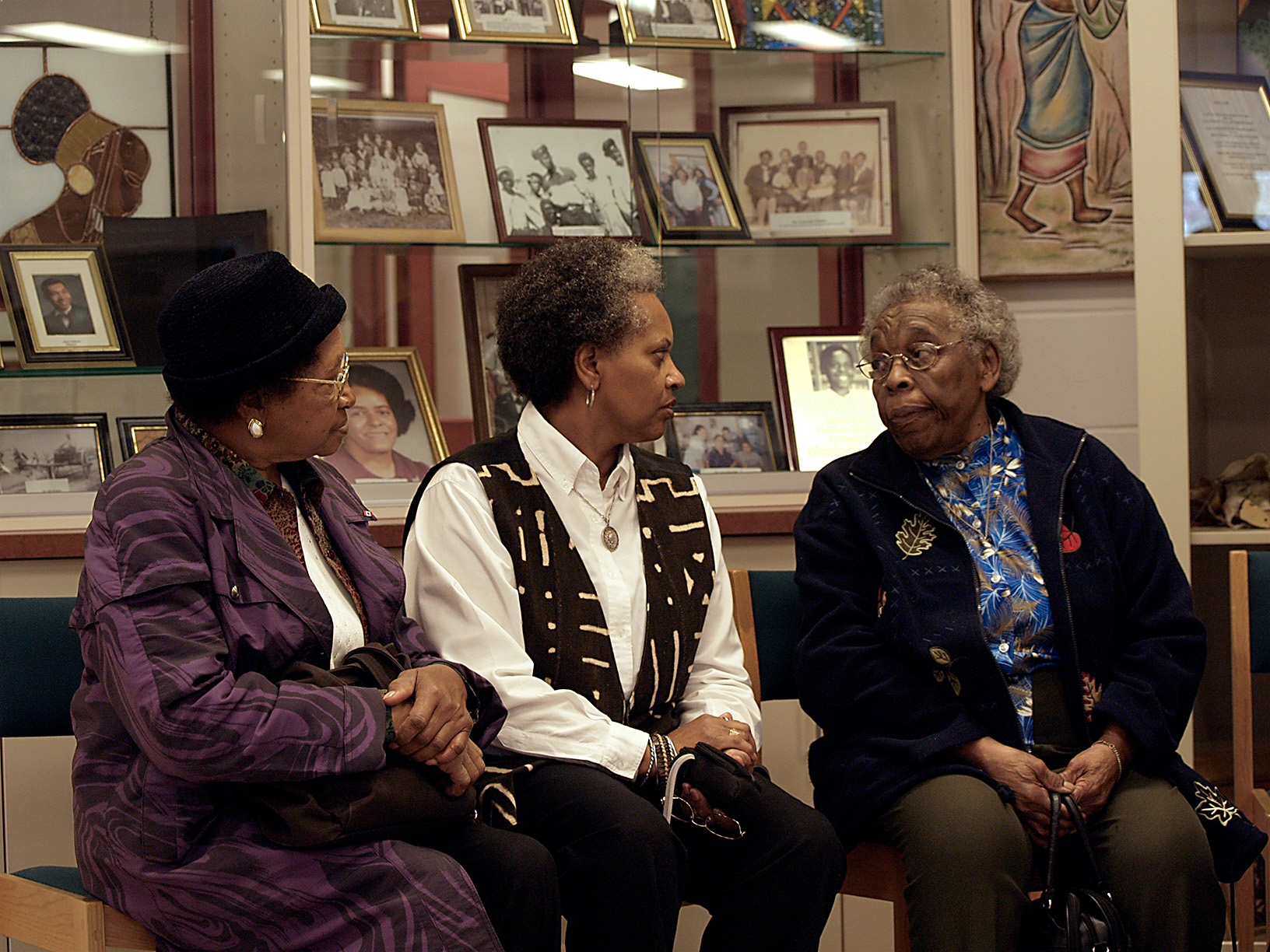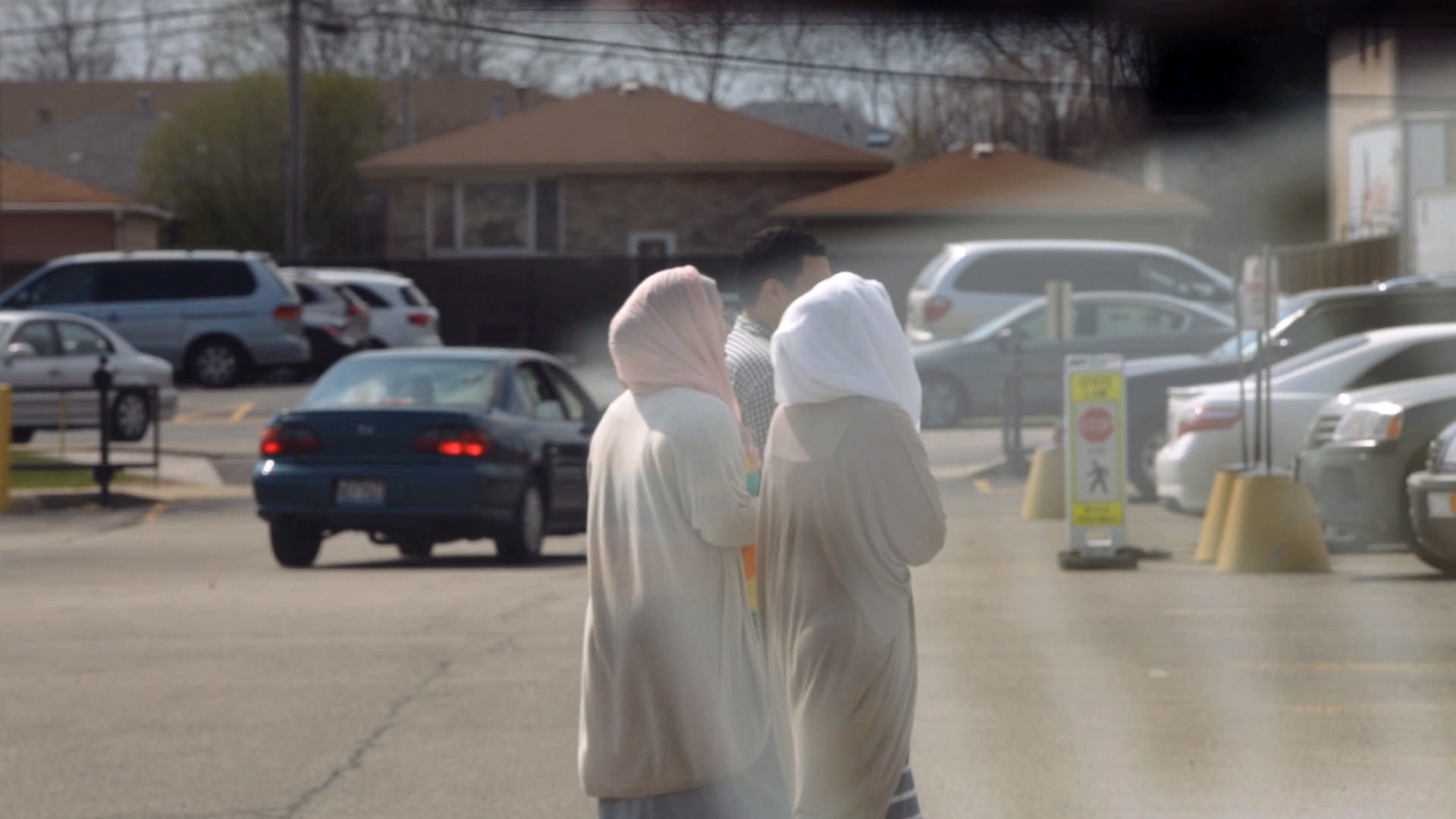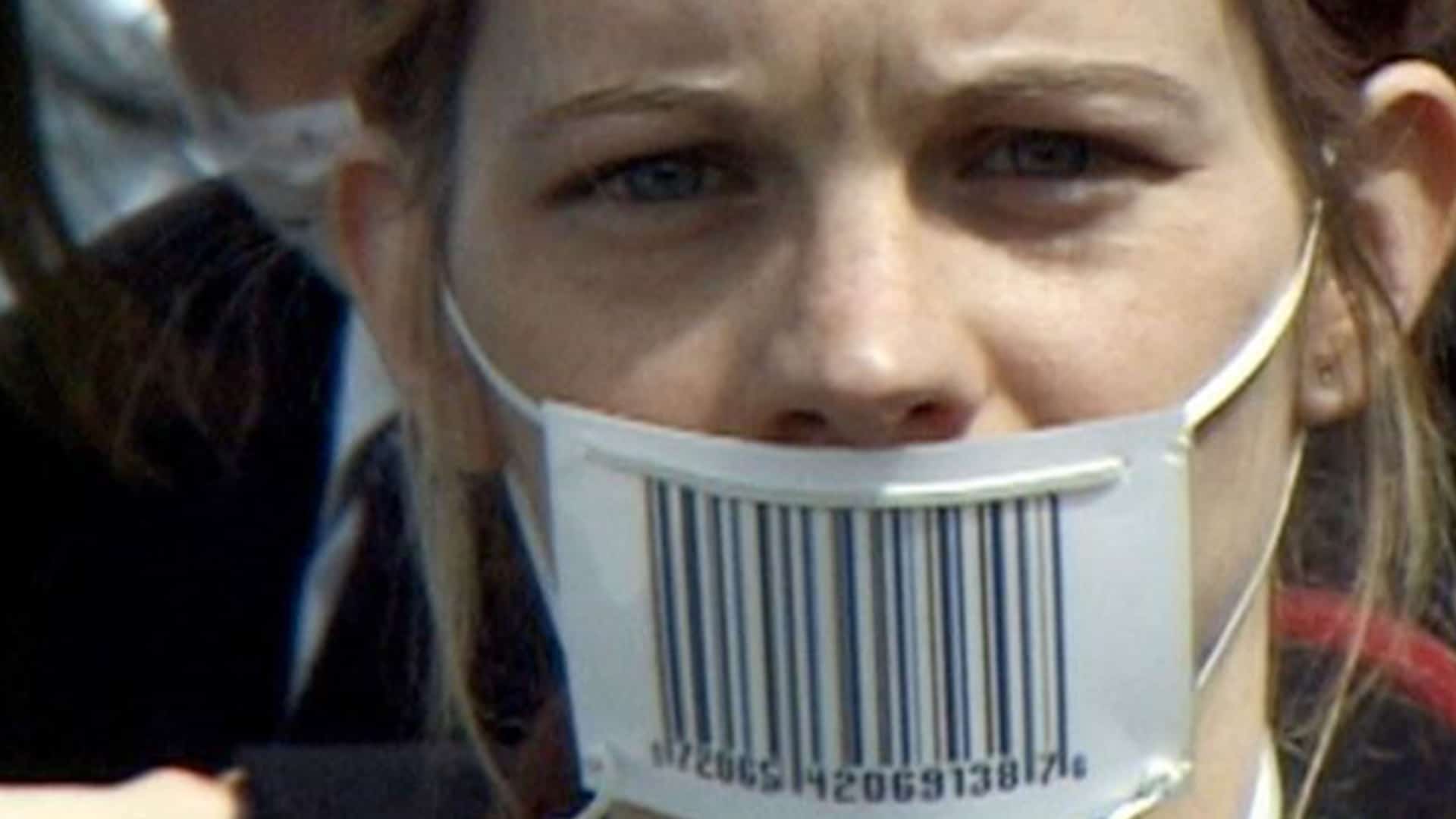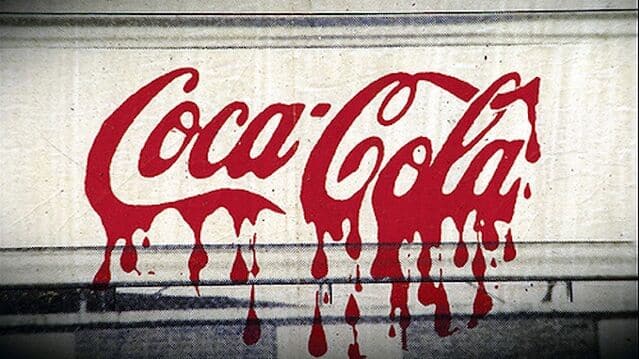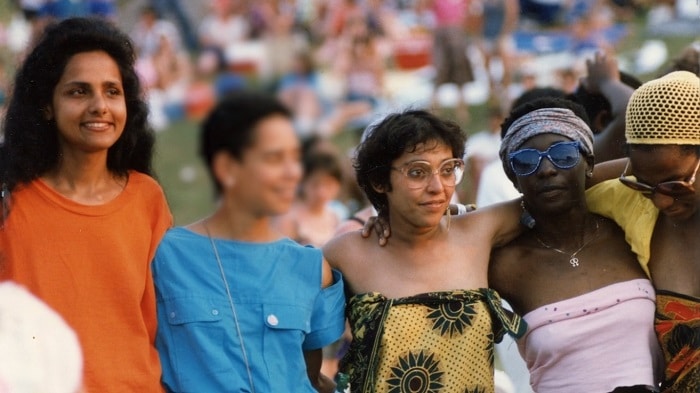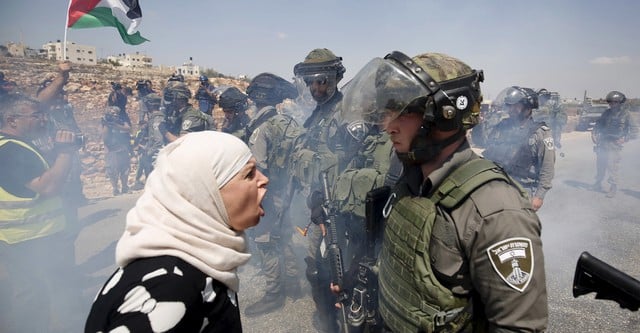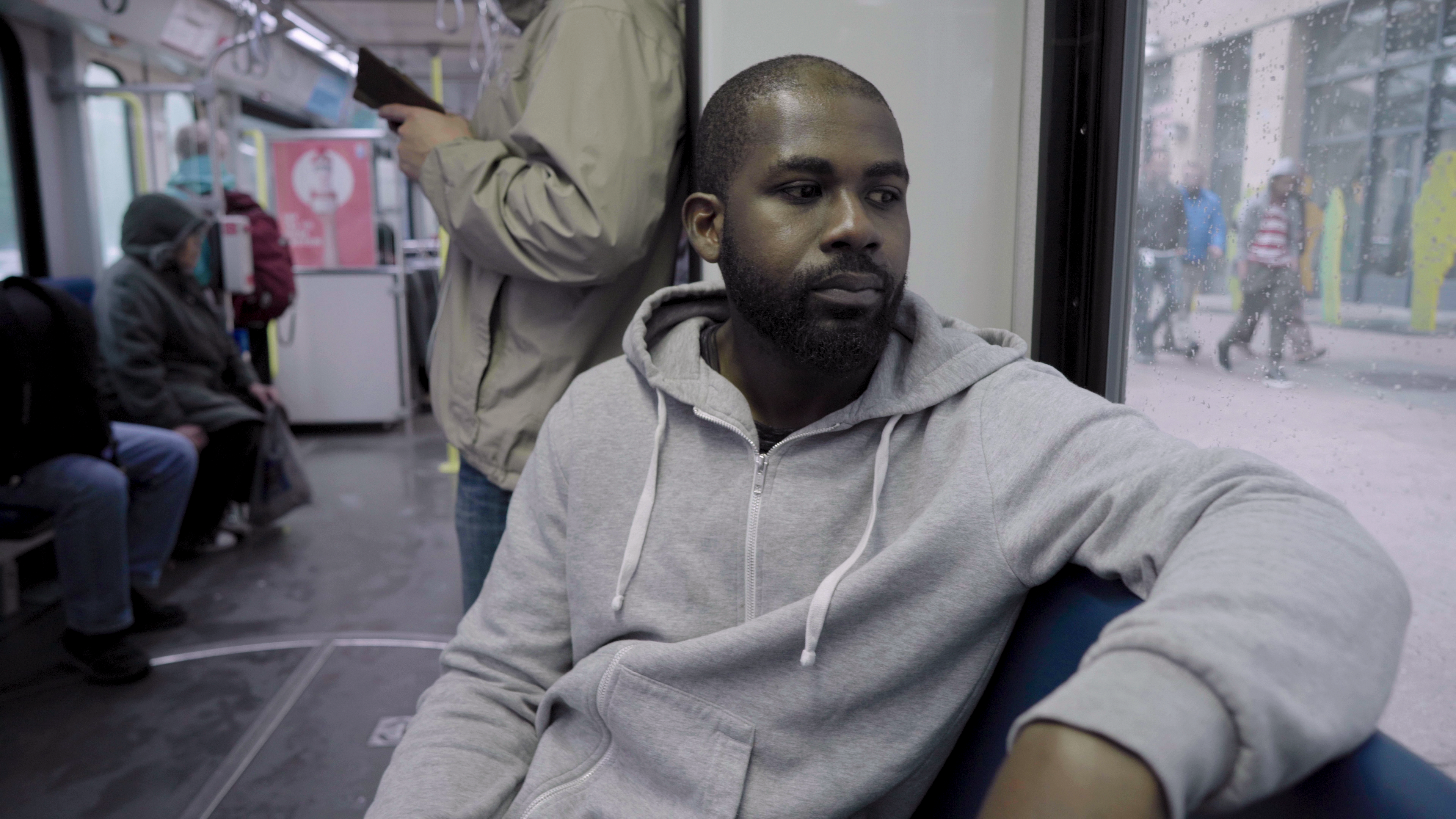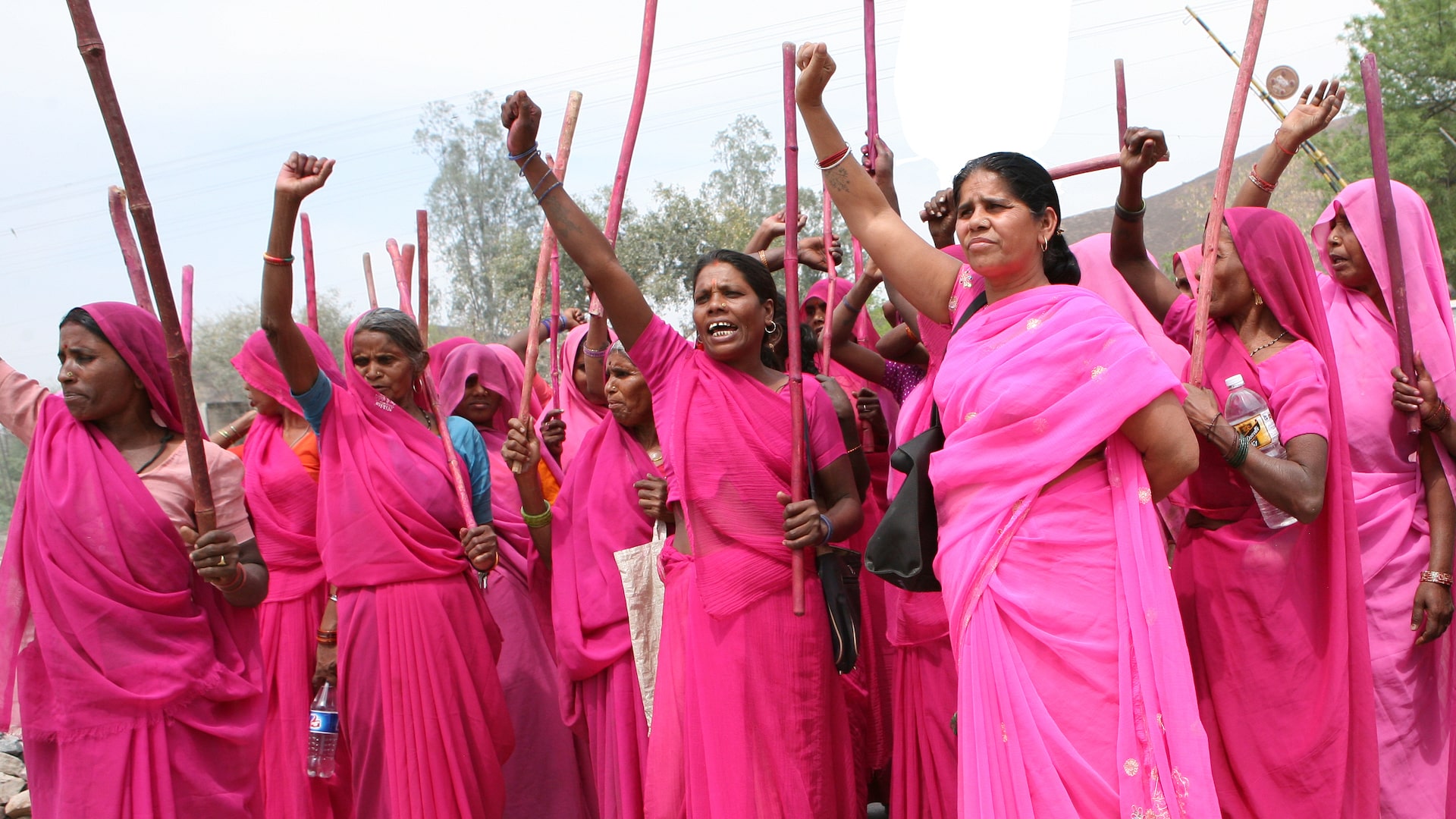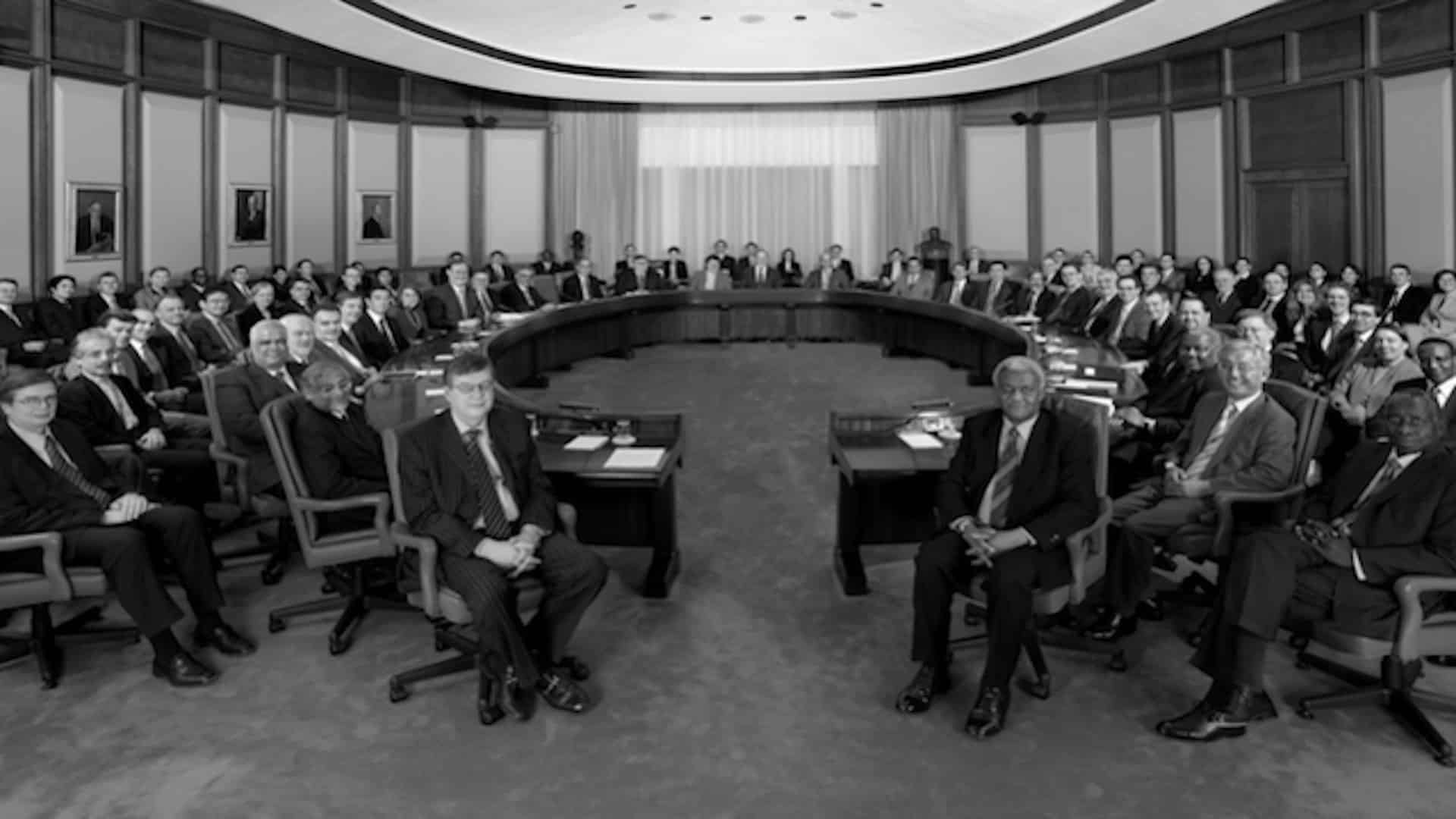Cinema Politica initially hatched at Montreal’s Concordia University in 2003, filling a lacuna in the world of contemporary film exhibition. Between the barrage of multiplexes and selective programming of repertory cinemas, there was a noted absence of bold political documentaries in the ecosystem. Over the following years, Cinema Politica launched a mission to refute neoliberal political narratives, empower the lesser heard stories, and support independent documentary cinema. The project turned international, amassing dozens of chapters across the globe, all screening hard-hitting political films in free-to-the-public community screenings. Two decades into its journey, Cinema Politica remains committed to its goal of finding a path towards a liberated future, paved by the intersection of film and activism. To celebrate, we’ve selected one film to highlight every year of Cinema Politica’s existence, recalling key memories, narratives and solidarities.
THE CORPORATION (2003)
The Corporation was a film that exploded on to the documentary scene in 2003, right as Cinema Politica was in its beginnings. The central premise that the corporation was a psychopath, explored through inventive and playful vignettes combined with probing industry and activist interviews, was a revelation and delight. We invited co-director (and now longtime supporter of CP) to a standing-room only screening at the legendary H-110 cinema at Concordia University for a city premiere of the audacious doc that was raising conservative blood pressure across Canada. Mark led an intensely engaged post-screening discussion in a red suit complete with colour-matched briefcase, devil’s tale and halo (signifying the corporation’s double status as benevolent actor on the surface, but rapacious entity in reality). As 700 people streamed out of a nearly three hour campus event we knew two things: both this film and CP would continue to spark discussion and activation in communities across the country.
TWO WORLDS COLLIDING (2004)
Saskatoon, January 2000. The city was engulfed in a treacherous winter, assailed by bitter winds. Darrell Night, a Cree man in his mid-thirties, was picked-up by two cops and stranded on the frigid outskirts of the city, left to freeze to death. While Night miraculously survived his attempted execution, many Indigenous civilians have been killed through “starlight tours:” a long-running practice where police deliberately strand Indigenous people at subzero temperatures. Tasha Hubbard’s disturbing yet essential debut film TWO WORLDS COLLIDING studies this racist practice in early 2000s Saskatchewan, illuminating policing as a fundamental arm of white supremacy. Full of haunting glacial imagery and bokeh-laden cityscapes, Hubbard breaches the “blue wall” of cop solidarity, revealing truths about a racist justice system and pursuing restitution for its Indigenous victims. Over the course of her career, Hubbard’s become one of the most essential Indigenous documentarians in Canada; Cinema Politica was honoured to showcase her showstopping first chapter.
THE REAL DIRT ON FARMER JOHN (2005)
There is something transgressively sublime about a farmer in a feathered red boa riding a tractor through muddy fields. Farmer John, aka John Peterson, is the title protagonist in this subversive romp about a Midwestern American farmer who seeks with appropriate zeal and flair, to combine the growing of food with political art. Peterson sets up a CSA (Community Supported Agriculture) called Angelic Organics that serves as both an agrarian and revolutionary hub the likes of which Illinois had not seen before. Performance art and the cultivation of crops share screen time in this playful, spirited documentary about work and play, identity and politics. While his neighbours were not so keen on Peterson and company’s antics, CP audiences have reveled in the film’s celebration of carefree expression and radical care.
OCCUPATION 101: VOICE OF THE SILENCED MAJORITY (2006)
Brothers Sufyan Omeish and Abdallah Omeish’s OCCUPATION 101 is an invaluable capsule of Palestine solidarity movements that emerged after the Second Intifada. Cut with visceral, mid-00s-style digital montage, the film traces a heartbreaking history of Palestine’s occupation, from the Balfour Declaration to modern mass-media whitewashing, lamenting a lost Palestine where Jews once lived peacefully among Arabs. Explored through conversations with scholars (including Noam Chomsky and Ilan Pappe), human rights activists, and religious leaders, OCCUPATION 101 elucidates a 21st century condition surrounding the mass displacement and ethnic cleansing of Palestinians; while information on Israel-Palestine has never been more widely dispersed, it’s also never been more curated to centre Zionist narratives and silence opposition. Today, the Omeish Brothers’ warnings about a mediasphere manufacturing consent for genocide only becomes more pertinent as the extermination of Palestinians escalates to barbaric heights.
THE LITTLE BLACK SCHOOL HOUSE (2007)
In this classic documentary, Nova Scotian filmmaker Sylvia Hamilton weaves together stories of segregation, tracing a legacy of Black students neglected by education systems and Black Canadian histories omitted from school curriculums. With affection—and levity from legendary jazz pianist Joe Sealy’s heartwarming score—Hamilton situates pedagogy as a tool of resistance to institutional racism. With omniscient voiceover from the titular schoolhouse, the film becomes a repository of Black Canadian history, unraveled through testimonial memories, archival photos, letters, and legislative documents. Hamilton pairs interviewees’ fond anecdotes of beloved Black teachers with horrific accounts of legislated segregation and constitutionally enshrined white supremacy. THE LITTLE BLACK SCHOOL HOUSE is a thorny and bittersweet reckoning with dark and often hushed-over pages of Canadian history.
ENCIRCLEMENT: NEO-LIBERALISM ENSNARES DEMOCRACY (2008)It isn’t every day that a black and white, two hour and forty minute film of mostly talking heads enlivens political discourse and stokes the fires of solidarity. Richard Brouillette’s sobering, austere treatise on the capture of every level of society by the pernicious ideology (and policy set) known as neoliberalism is revelatory and instructive. This densely layered, multi-award winning film explores the history, the mechanisms, the effects and impacts, and one could say the very DNA of neoliberalism and how it has come to dominate the globe. As the antithesis of solidarity, we were bowled over by this staggering project, and further delighted to collaborate with Brouillette, a political filmmaker if there ever was one, far beyond initial screenings of his magnus opus.
THE COCA-COLA CASE (2009)
CP has received plenty of letters over the years, but the one from Coca-Cola’s high-powered NYC legal team takes the cake. The company, it seems, had gotten wind of our planned tour of Montreal filmmakers’ Carmen Garcia and German Gutierrez explosive investigative documentary and ordered us to “cease and desist.” We did what any activist screening organization would do and instead immediately contacted the media. The David and Goliath story of a huge multinational threatening a wee non-profit in Canada helped draw huge crowds to screenings of THE COCA-COLA CASE across the country. Audiences learned of the company’s terrible deeds at bottling plants in Latin America, where organized labour leaders are routinely harassed, abducted and murdered. In Garcia and Gutierrez’s deft hands, the sordid tale of corporate greed and malfeasance helped bolster growing social movements and campaigns (such as Killer Coke) against the human rights and environmental abusing company.
WATER ON THE TABLE (2010)
If capitalism truly profanes all that is sacred, it was just a matter of time before water became a central frontier for avaricious corporations. Over the course of one riveting year, Liz Marshall follows Maude Barlow—Canadian water activist and Senior Advisor on Water for the UN General Assembly President—as she leads an opposition movement against the proposed North Simcoe landfill. Barlow staunchly believes water should be a public right, uncorrupted by the private sector. Over the course of the film, she skirmishes with proponents of the American corporate sphere: people who willfully enable mass pollution and turn water, the fulcrum of human preservation, into a commodity. Behind the camera, Marshall’s stylistic approach mixes observational modes, testimonies, and haunting shots of liquid abstraction to reveal a world tied together by networks of water under siege by capitalist plunderers.
TUNNIIT: RETRACING THE LINES OF INUIT TATTOOS (2011)
Director Alethea Arnaquq-Baril had trepidation about showing her crucial doc exploring the resurgence of ancient practices of Inuit face and body tattooing, and for good reason. Settler appropriation of Indigenous art and culture is as old as colonization, and sharing her intimate work presented a risk of facilitating further exploitation. Yet after safeguarding the film for a half-decade Arnaquq-Baril made the bold decision to hold a launch at CP’s flagship chapter, Concordia University in 2016. A packed house (“largest-ever live audience” one headline read) for an older film about a very particular cultural practice buzzed with energy. Arnaquq-Baril fielded a range of questions in the post-screening discussion, including from a non-Indigenous audience member who wondered why they couldn’t get such a tattoo in order to honour Inuit culture. “I suggest you instead look at the history of art from your own lineage,” was the director’s response. TUNNIIT retraces ancestral practices and systems of knowledge while also moving in deeply personal, emotional and familial spaces that are both fraught and joyous. CP was delighted to screen this unique film and to distribute it far and wide.
GULABI GANG (2012)
Gulabi means pink in Hindi. Yet for the Gulabi Gang, a feminist vigilante collective in India with hundreds of thousands of members, pink is also a symbol of resistance. Clad in pink saris and wielding wooden lathis, the group leads non-violent protest, organizing for both Dalit class struggle and women’s liberation. Nishtha Jain’s searing and empowering portrait captures Gulabi Gang mobilization across the arid, rural landscapes of Bundelkhand in Central India. The region is plagued with femicides and everyday oppressions as byproducts of the caste system. With startling proximity, Jain captures clashes with reactionary patriarchs, conversations with victim’s families, and Gulabi Gang recruitments. As the film’s tireless subjects work towards mass Indian legal reform, GULABI GANG offers an energizing and intersectional critique where abolition of the patriarchy and caste system go hand-in-hand.
MY PRAIRIE HOME (2013)
A timeless favourite with CP programmers, Chelsea McMullan’s musical documentary shares the spaces, thoughts and movements of Calgary-born musician Rae Spoon as they make their way across Canada’s prairies. A collaboration between filmmaker and protagonist, MPH is a loving portrait of trans-identity and creative process. Gorgeously stitched into frames between stories of family trauma and Conservative Canada are quirky musical numbers including tableaus of the classic teen prom dance. Quirky should not be taken as diminutive – the quirks in this film, and in its titular lead, are elegant and ecstatic. They draw audiences into a reflective stillness despite the constant movement emblematic of any road movie. CP showed this gender queer / musical classic in Toronto at our Bloor Cinema chapter and unsurprisingly the house was full. As if the film wasn’t enough of a gift, Spoon was there too; they strode down the aisle amongst a standing ovation, ambled up on stage, and played a handful of their soul-tangled songs.
VESSEL (2014)
Progress isn’t always linear. Over a decade has elapsed since Diana Whitten’s explosive documentary VESSEL surfaced, yet international abortion access remains equally (if not more) precarious. The film charts Women on Waves’ fearless project to serve life-saving abortions to women around the globe (e.g. Ireland, Ecuador, Tanzania). Against the behest of certain lawmakers and local conservatives, Women on Waves circumvent regional abortion laws by performing operations on a Dutch ship in international waters (which maintains the legal jurisdiction of the ship’s motherland: the Netherlands). While their mobile clinic travels global seaways, Rebecca Gomperts—its resolute captain—performs abortions, survives high-octane marine chases from authorities, and enjoys an occasional Heineken. VESSEL exposes the committed lengths its subjects endeavour to grant safe reproductive health services, all the while advocating for international and borderless rights to bodily autonomy.
3000 NIGHTS (2015)
Zionist forces can unleash endless airstrikes, orchestrate mass famines, and incarcerate whole populations, but they cannot squash the spirit of Palestinian resistance. Unfolding in the 1980s in a max-security women’s cellblocks of the Israeli Ramala Prison, Mai Masri’s mesmerizing drama (inspired by true prisoner stories) follows a pregnant Palestinian schoolteacher’s unjust arrest and eight-year sentencing. Surrounded by barbed wire and carceral grates, she finds solidarity with fellow prisoners, participates in a prison strike, and raises her child behind bars, maintaining a spirit of revolutionary optimism. With an eye for carceral architecture (e.g. abstractions of chainlink fences and prison walls), the movie follows the relationship between disparate prisoners as initially fraught relations blossom into comradery. Though 3000 NIGHTS is one of the few CP fiction titles, it’s no less hard-hitting; the film passionately distills the importance of solidarity and resilience in the face of a ruthless colonizer.
MIGRANT DREAMS (2016)
In early 2017, a migrant worker recruiter was ordered by Ontario Court to repay the exorbitant fees he charged labourers to connect them with local greenhouse employment. Released the year before, Min Sook Lee’s startling exposé offers the backstory to this judicial outcome, illuminating the shameful realities of Canada’s Temporary Foreign Worker Program. Through conversations with agricultural migrant workers, the film exposes how vulnerable labourers are subjected to obscene financial deductions and indentured labour, prohibited from welfare, and forced into vulnerable positions in a government program that more accurately resembles an organized crime scheme. MIGRANT DREAMS reveals the facade of Canada’s so-called cultural mosaic; the national promise of benevolent multiculturalism is a cannibalizing beast, exploiting migrant workers while propping them up as exhibitions of diversity.
DEFIANT LIVES (2017)
Across the UK, the US, and Australia, collectives of disabled activists rise up and assert their humanity against an ableist world that often leaves them institutionalized, incarcerated, impoverished, and abused. Filmmaker Sarah Barton’s encompassing film provides a long-spanning history of modern disability rights protest movements, from mobilizations against the dehumanizing, paternalistic Jerry Lewis MDA telethons to the Capitol Crawl in support of the Americans with Disabilities Act. Barton situates disability justice activism in tandem with other social movements (e.g. the Black Panther Party’s Black Power organizing), illuminating a crucial yet often neglected political lineage. Both a critique of fetishistic able-bodied “allies” and an uplifting testament to the resilience of unyielding disabled activists, Barton’s pulsating film captures a journey for disabled people to reclaim their political agencies and to be seen as fully human in a world that’s long dismissed them as fragmented and lesser-than.
THE FEELING OF BEING WATCHED (2018)
Surveillance is one of the American empire’s favourite tools of suppression. Beyond the actual information it accrues, surveillance also disperses paranoia amongst a community, turns its residents inwards, quells dissidence, and inspires self-policing. In her unsettling film, Algerian-American filmmaker and investigative journalist Assia Boundaoui explores the history of FBI surveillance against Arab-Americans, ranging long before 9/11. Mixing archival documents on microfilm and her family’s stories, Boundaoui plumbs the sinister depths of Operation Vulgar Betrayal: an FBI surveillance program that targeted her predominantly Muslim neighbourhood just outside Chicago under the guise of “counter-terrorism.” THE FEELING OF BEING WATCHED follows Boundaoui’s commitment to “watch the watchers,” igniting a campaign to expose the violating panopticon Arab-Americans have long endured. The result is an activating and eye-opening documentary.
OUR DANCE OF REVOLUTION (2019)
A slow-mo procession of protesters marches down Toronto’s Yonge Street, clenched fists raised in a haze of coloured smoke. Born against this backdrop of 2010s Black Lives Matter protests, Phillip Pike’s sweeping and affecting documentary zooms out to regale a sprawling history of Black, queer resistance in Toronto. Tracing traditions of Black Torontonian activism, the film weaves together legacies of the Black Women’s Collective, the Black Coalition for AIDS Prevention, local drag and DJ cultures, inclusive church communities, and battles with a Toronto Pride that seeks to co-opt and assimilate Blackness for financial gain. Each story in this epic saga comes to life with vivid testimony, photographs, newspaper articles unearthed from the archive, and eclectic arts performances. With OUR DANCE, Pike scribes a tender elegy for Black lives lost to structural racism, imagining liberation as something that sparks when people unify—not only in the streets, but also at nightclubs, poetry recitals, and kitchens.
NO VISIBLE TRAUMA (2020)
While diagnoses of police violence and its White supremacist underpinnings often centre on American precincts, Canada is not above similar abuses of power. Rather, the same pathologies courses through Canadian police stations and dispatches, including the Calgary Police Service’s epidemic of excessive force. Produced over five years, this harrowing feature from Robinder Uppal and Marc Serpa Francoeur relays three unprovoked acts of Calgary police violence: Anthony Heffernan’s slaying, Godfred Addai-Nyamekye’s assault and stranding underdressed in freezing weather, and Daniel Haworth’s life-ruining head trauma at the hands of an officer. The film mixes dashcam, surveillance, and helicopter footage with interviews from victims or families of deceased victims, mournfully depicting stories of lives damaged or stolen at the hands of callous cops. In the absence of substantial police accountability (ASIRT, the investigating body, is conducted by fellow cops), NO VISIBLE TRAUMA is an indictment and rallying cry for justice. The film was released in 2020, concurrent to post-George Floyd dialogues about police aggression and abolitionist solutions, and became a crucial addition to the conversation in Canada.
DEAR JACKIE (2021)
After a short tenure with the minor-league Montreal Royals, Jackie Robinson hit the big time and became the first Black MLB player, ascending to stardom as the Brooklyn Dodger’s first baseman. For many, Robinson was the face of a post-racial ideal, and Montreal became infused with the utopian possibility of breaching the colour barrier. Sixty-five years after Robinson’s Quebecois stint, Henri Pardo’s haunting and epistolary film DEAR JACKIE confronts a modern Montreal detached from any post-racial reality. Through a series of visual letters addressed to the long-deceased Baseball Hall of Famer, Pardo paints a collective portrait of today’s Black community in the city’s Little Burgundy neighbourhood. Eclectic and expansive, the film studies the conditions of Blacknesses through a myriad of perspectives and subjects: baseball, food sovereignty, police violence, gentrification, etc. While never disparaging Robinson himself, the film rejects his symbolic mythology as post-racial harbinger. Instead, DEAR JACKIE reveals a modern-day city where Black people continue to fight the structures of their subjugation, struggling for recognition and prosperity.
THE KLABONA KEEPERS (2022)“They stole the children from the land. Now they steal the land from the children,” land defender Rhoda Quock remarks in Tamo Campos and Jasper Snow Rosen’s incendiary yet softhearted documentary. For the Tahltan Nation, modern postcolonial history remains rife with endless grief, from residential schools to violating land grabs. Through heartfelt interviews and frontline blockade footage, the film chronicles the successful, Indigenous-lead protest against industrial developers’ attempts to seize the Sacred Headwaters: a sprawling alpine region in northern British Columbia and one of North America’s largest intact freshwater ecosystems. While Tahltan protests ultimately resulted in an agreement to protect the 286,000 hectares of Klabona, the film does not end with a tidy resolution. Rather, the battle to protect Indigenous land from extractivist industries persists across North America, as the corporate machine continues to trample preserved ecosystems for profit.
